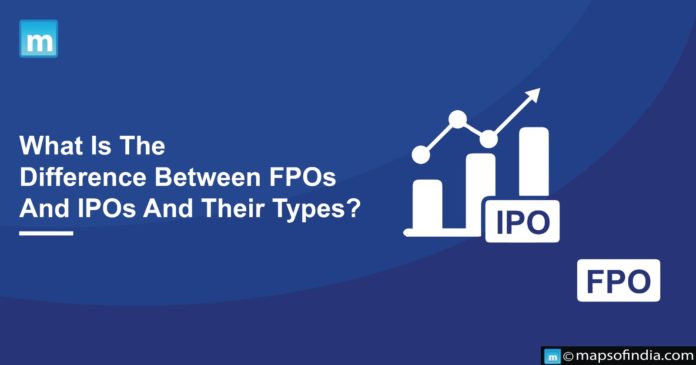You may have encountered the terms ‘IPO’ or ‘FPO’ when reading about firms wanting to raise capital for business or growth. However, because there are lesser FPOs than IPOs, the term “Initial Public Offering” (IPO) is more widely encountered.
What is an FPO?
Follow-on Public Offer (FPO) is a procedure for issuing stock exchange securities to participants. It is a method of acquiring extra equity money to support the company’s business or to carry out its expansion ambitions. The FPO definition states that every public offering undertaken after the IPO is an FPO.
What distinguishes an IPO from an FPO?
- An IPO occurs when a business is unregistered before its first public offering. Because the prospective buyer may not have a record of the firm’s popularity to evaluate before investing, it is a somewhat high-risk transaction.
- In contrast, an FPO is provided when the firm has already been listed. This enables investors to examine market patterns and study their possible investments for some time before making a choice.
- While private corporations use IPOs to finance growth, many government bodies utilise FPOs to make payments or losses or reduce company ownership.
What are the various sorts of IPOs and FPOs?
-
Offering at a predetermined price
As the name implies, a guaranteed price offering sells the initial firm shares at a set price. The price is determined by the firm, and buyers are informed of the share pricing before the business goes public.
-
Book Building Offering
A bidding procedure is involved in the book-building offering. The stock value is not set. A bidding procedure selects it, and the value is established after the procurement process is completed. The buyer must state how many stocks they want and the amount they are willing to pay.
Classification of FPOs
-
A diluted offering
A dilutive FPO occurs when a corporation wishes to issue extra shares to raise more cash. This is carried out to repay debts. However, in a dilutive FPO, a company’s valuation remains unchanged, resulting in a fall in the firm’s per-share income.
-
A non-dilutive offering
In this situation, the company’s founders or most investors sell some of their stock to the market. This revenue is distributed to the individual selling the shares, not the corporation. As a result, the company’s profits per share remain unaltered.
Which one is less risky and more profitable?
Investing in Initial public offerings and Followup Public Offerings has certain concerns. While IPOs are risky, they can also lead to higher earnings. FPOs, on the other hand, are more dependable because the firm is publicly traded, and additional information is accessible regarding its path in the share market. The complexities of each investment, its benefits, drawbacks, and restrictions can be difficult to comprehend fully. If you want to participate in an FPO but need clarification on how to do so, you may hire a financial stockbroker to help you.





